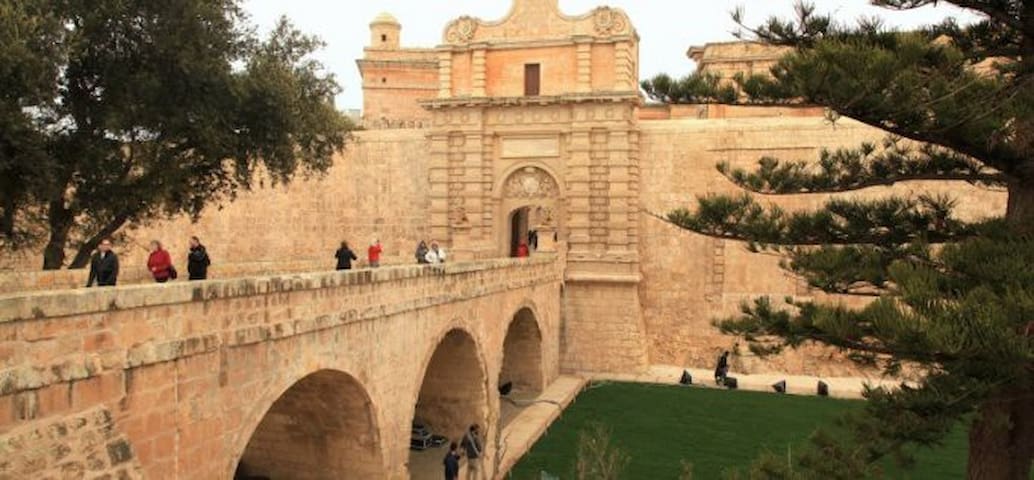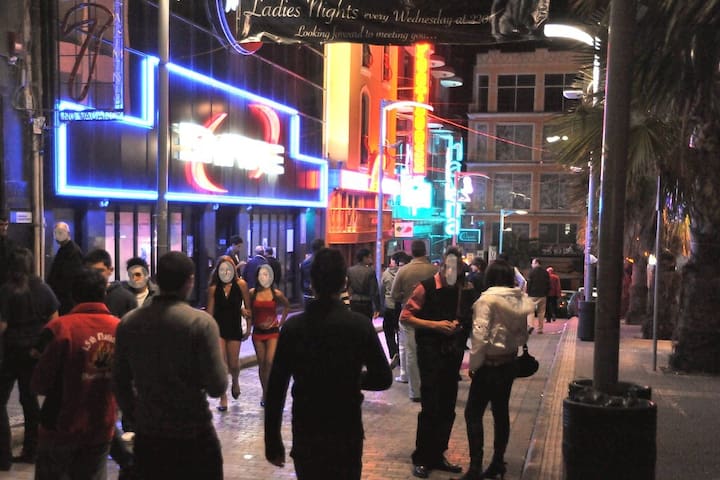Food Scene
Nice walk to Burger King, and while you there enjoy the view of our beautiful city Valletta
12 icetyiswa ngabantu basekuhlaleni
Burger King Sliema
Tigné SeafrontNice walk to Burger King, and while you there enjoy the view of our beautiful city Valletta
KFC Gzira
238 TestaferrataKentucky Fried Chicken
Mamma Mia Restaurant
Dine in style by the Yacht Marina
Essentials
Gala Center Supermarket for groceries and vegetables and more
10 icetyiswa ngabantu basekuhlaleni
Gala Centre
Triq TestaferrataGala Center Supermarket for groceries and vegetables and more
Sightseeing
St. John's Co-Cathedral
Triq San GwannMasterpiece
Valletta
A City built by gentlemen to gentlemen
Mdina was inhabited and possibly first fortified by the Phoenicians around 700 BCE. The Phoenicians called it Maleth. The region benefits from its strategic location on one of the island's highest points and a maximum distance from the sea. Under the Roman Empire, Malta became a Municipium and the Roman Governor built his palace in Mdina. Tradition holds that the Apostle St. Paul resided in the city after his historical shipwreck on the islands. Much of its present architecture reflects the Fatimid Period which began in 999 AD until the Norman conquest of Malta in 1091 AD. The Normans surrounded the city with thick defensive fortifications and widened the moat. The city was also separated from its nearest town, Rabat
472 icetyiswa ngabantu basekuhlaleni
Mdina
Mdina was inhabited and possibly first fortified by the Phoenicians around 700 BCE. The Phoenicians called it Maleth. The region benefits from its strategic location on one of the island's highest points and a maximum distance from the sea. Under the Roman Empire, Malta became a Municipium and the Roman Governor built his palace in Mdina. Tradition holds that the Apostle St. Paul resided in the city after his historical shipwreck on the islands. Much of its present architecture reflects the Fatimid Period which began in 999 AD until the Norman conquest of Malta in 1091 AD. The Normans surrounded the city with thick defensive fortifications and widened the moat. The city was also separated from its nearest town, Rabat
Neighborhoods
Paceville is a district in St Julian's which is the main nightlife hub in Malta, being heavily populated with nightclubs, bars, strip clubs, pubs, and restaurants.
367 icetyiswa ngabantu basekuhlaleni
Paceville
Paceville is a district in St Julian's which is the main nightlife hub in Malta, being heavily populated with nightclubs, bars, strip clubs, pubs, and restaurants.


